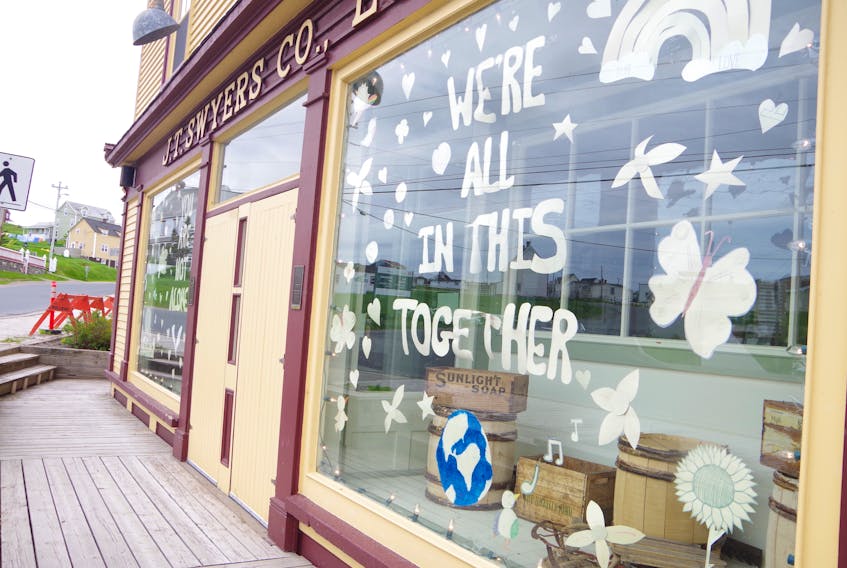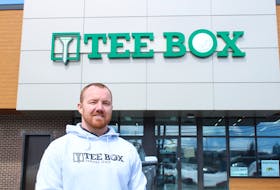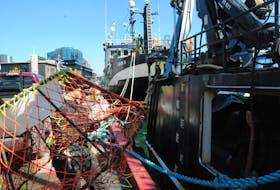ST. JOHN'S, N.L. — While a push continues for travel between provinces to offer some respite for a beleaguered tourism industry in Atlantic Canada, data shows consumer confidence in the region is very low.
Steve Denty, chairman of Hospitality Newfoundland and Labrador, spoke at a virtual news conference Tuesday highlighting the national recovery campaign pitched by the Tourism Industry Association of Canada.
The association is calling for measures to help businesses in the tourism sector avoid bankruptcy, and for the promotion of safe travel to offer some short-term relief.
Related
- Looking at the potential trade-offs for Newfoundland in an Atlantic region travel bubble
- Staycations make or break for $1-billion Newfoundland and Labrador tourism season
"The industry has already developed robust safety protocols and measures for many sectors, including airlines, airports, restaurants and hotels, meetings and convention centres … but we need a co-ordinated effort to develop a climate for public safety and help fund costs for new health and safety measures," Denty said Tuesday. "Right now, we're seeing vastly different travel restrictions across the provinces and territories, and we don't have a co-ordinated approach."

On that front, Denty is becoming more optimistic about the prospect of an Atlantic bubble transpiring that would permit travel between provinces. With the short season at play, Denty said operators need to be able to make informed decisions about whether they will continue to operate and how many employees they will bring back if they're reopening.
"COVID isn't going to go away tomorrow, and we need to shift the dialogue from not travelling at all to how do we travel safely," he said. "The more information we can get in the hands of operators and consumers as fast as possible, it will allow them to plan those trips and they'll know what attractions are open and what businesses have done to prepare to serve them in a healthy and safe manner."
Atlantic bubble
The Atlantic bubble also came up at Tuesday's Halifax Partnership virtual event on reopening that city's economy.
"Key drivers of our collective economic recovery in addition to returning to our physical office spaces will be the opening of our borders for free movement of people and business within an Atlantic bubble and clear timing of reopening milestones where possible for Halifax businesses to plan for their future over the short term, as the longer-term trajectory for this illness is unknown," said Wendy Luther, CEO of Halifax Partnership, a public-private economic development organization.
Denty also suggested there is a need for incentives to encourage people to travel over the summer, noting Japan and other countries are offering credits and tax vouchers to do this.
"We should also (encourage) Canadians to travel in their own country by providing household tax credits for domestic travel," Denty said, mentioning GST rebates for domestic flights as an option.
On other fronts, Denty highlighted the need for funds to support capital projects to stimulate the economy and create jobs, policies to increase immigration, and support for festivals and events.
"There are many ways in which the government can restart the economy and support this important sector. The cost of doing nothing would be far greater than the cost of investment in pre-COVID growth industries like the visitor economy."
Consumer confidence

The Halifax Partnership event also delved into the findings of recent Narrative Research surveys related to the COVID-19 pandemic. Narrative Research CEO Margaret Brigley noted the consumer confidence index last month for Atlantic Canada reached the lowest level recorded since her company started tracking this data more than 25 years ago, with consumer confidence among the four provinces the lowest in Newfoundland and Labrador.
The index produces a composite score based on questions on the perceived and anticipated state of the economy, current and future household well-being, and conditions for making major purchases.
"This index has proven to be sensitive to national, regional and international events and very much reflective of our real-world reality," Brigley said.
A survey conducted with 1,230 Canadians in mid-May looking at what they would consider participating in over the next few weeks and months found just under three in 10 Canadians would consider going to a restaurant. Among the least likely activities would be going to a gym (19 per cent), bar or pub (13 per cent), spa (12 per cent) or casino (10 per cent).
On air travel, the news was not particularly positive, as only 13 per cent were likely to take a flight. Brigley noted approximately four in 10 respondents are waiting for a COVID-19 vaccine before considering air travel again.
A new survey with 1,230 respondents at the end of May looked at consumers' perceptions of governments allowing businesses and services to resume activity.
Canadians generally feel the pace of re-opening businesses and services is about right, and largely plan to continue to practice social distancing in the months ahead. These results are based on an online survey conducted in partnership with @LogitGroup pic.twitter.com/F0OBirAark
— Narrative Research (@EveryNarrative) June 3, 2020
"While some businesses certainly have been critical of the pace that businesses and services (are) opening, that sentiment isn't as prevalent among consumers," said Brigley.
Overall, 33 per cent felt the speed at which these businesses and services are reopening is too fast, while 59 per cent felt it was just right. Only eight per cent felt the pace is too slow.
The numbers for Atlantic Canada as a whole were similar, though the response in Newfoundland and Labrador varied somewhat. Here, 17 per cent felt it is too fast and 80 per cent felt it was just right, with only three per cent suggesting it is too slow.
Twitter: @CBNAndrew









